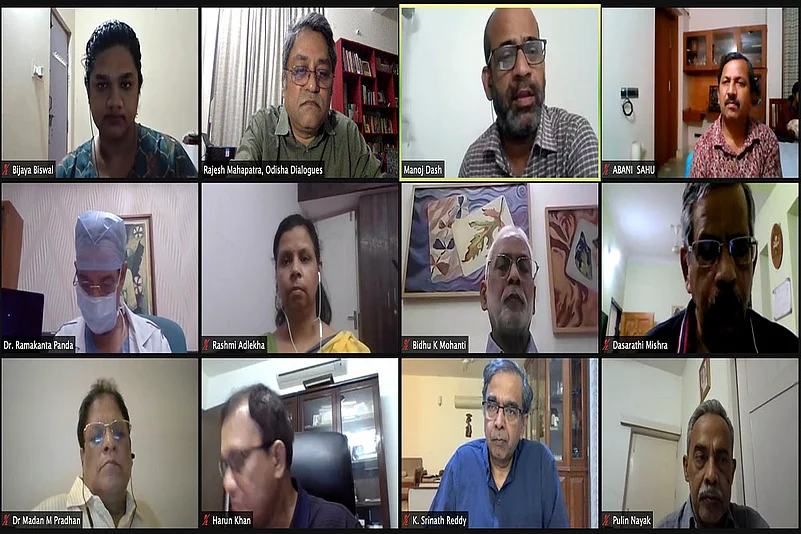The third Covid wave is imminent in the country, although it is difficult to predict its timing and severity, eminent health experts said, urging the Odisha government to do everything possible to ramp up its preparedness.
Speaking at a webinar organized by the Forum for Odisha Dialogues, the experts, however, said that the third wave could be less virulent than the second one.
“Pandemics normally last for two to three years. The virus mutates and acquires an aggressive form before it weakens. So, it is normal to expect a third wave, which is going to be less virulent than the second wave,” said Dr Ramakanta Panda of Mumbai-based Asian Heart Institute.
However, the experts were of the opinion that Odisha must immediately ramp up its preparations for the third wave and be prepared to tackle it if it hits the population in the next few months.
“We must be ready with a professional response – in terms of a geared-up health system and disciplined social behaviour. Health facilities need to be made available across the state apart from ensuring guided or assisted home care approach,” said Prof K. Srinath Reddy, President of Public Health Foundation.
Prof Reddy, who has been advising Chief Minister Naveen Patnaik on his government’s response to the pandemic, said efforts should be made to cover all the vulnerable groups with both doses of the vaccine and the entire 18-plus population with at least one dose before the next wave hits. Dr Panda seconded him stating that India’s vaccination pace has been rather slow compared to countries like China that is vaccinating 10 or 15 times the number of people India is vaccinating in a day.
While the fall in Covid-19 positive cases across India over the past six weeks signals a new hope in the country’s fight against the pandemic, identification of the Delta plus variant, unsatisfactory pace of surveillance and failure to take cognizance of early signs are contributing towards increasing the country’s vulnerability in the face of a future third wave, the experts opined.
“Odisha is in the ‘yellow’ zone which means it needs to ramp up its efforts,’ said Dr Panda, suggesting the state could learn from the experience of the “Mumbai Model’ which deliberately allowed an upper hand to experts rather than politicians or bureaucrats. “Wherever health experts have guided the vaccination and Covid management efforts, the results have been way better,” he said.
While the Odisha government’s efforts to prepare for a third wave can be seen in making available more beds, ICU facilities and oxygen plants, there are many other challenges that remain to be overcome, said Bibhu Prasad Sahu of Youth for Social Development, which has been helping with Covid-containment programmes in Ganjam.
Primary Health Centres in remote pockets of Odisha remain largely dysfunctional. Vaccination centres remain perennially under-prepared in terms of availability of rest room, cleanliness and drinking water apart from experience of regular vaccine shortage, said Dr Bijaya Biswal of Citizens’ Collective for Public Health, Odisha.
“Vaccination rate remains low due to vaccine hesitancy and sloppy response from the public health system,” added Rashmi Adlekha of Harsha Trust, which works on livelihood programmes in southwestern Odisha. Sahu of YSD pointed out that dalits, vulnerable groups, disabled, elderly frails and people living in remote areas are not being proactively reached out for vaccination.
Another area that needs attention is post-covid care. There is almost nothing in existence in this regard, said Dr Biswal, citing her experience with returnee migrants who had gone back to their places of work but are now coming back to the state. “They are experiencing a number of post-covid symptoms. The response system available to them is inadequate,” she said.
Over the past year, Odisha Dialogues, a newly-founded research and advocacy forum, has been facilitating research and conversations with the objective of strengthening the state’s response to the pandemic.
“Our efforts will also be scaled up in the months to come,” said Dr Bidhu Kalyan Mohanti, a well-known health expert and a founding member of Odisha Dialogues.
















